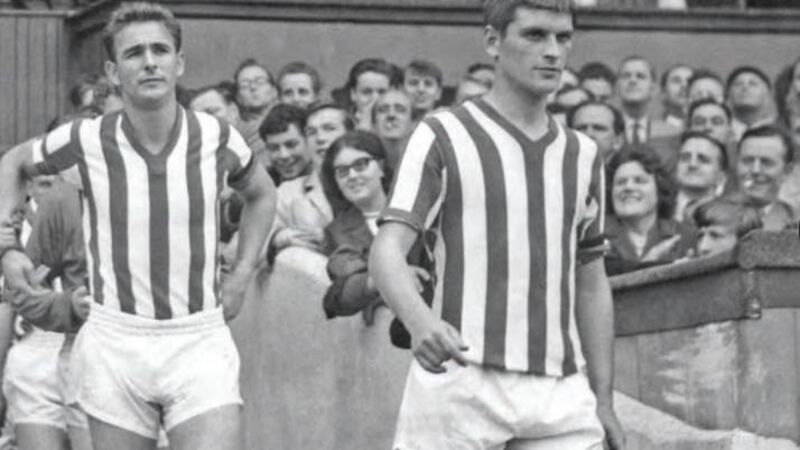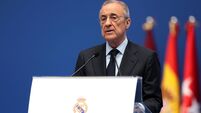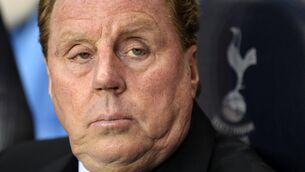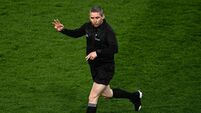The Man They Couldn't Ban: The story of Ireland's 'most harshly treated footballer of all time'

John Crossan and Brian Clough in 1964. Picture: Colmcille Press
It's 1984. A 14-year-old boy in an over sized school blazer stares longingly into a fogged up sports shop window.
His eyes darting across the disorganised but tantalising collection of replica jersies, football boots, gloves, sports coats, balls and, of course, gold and silver trophies just waiting to be won.











